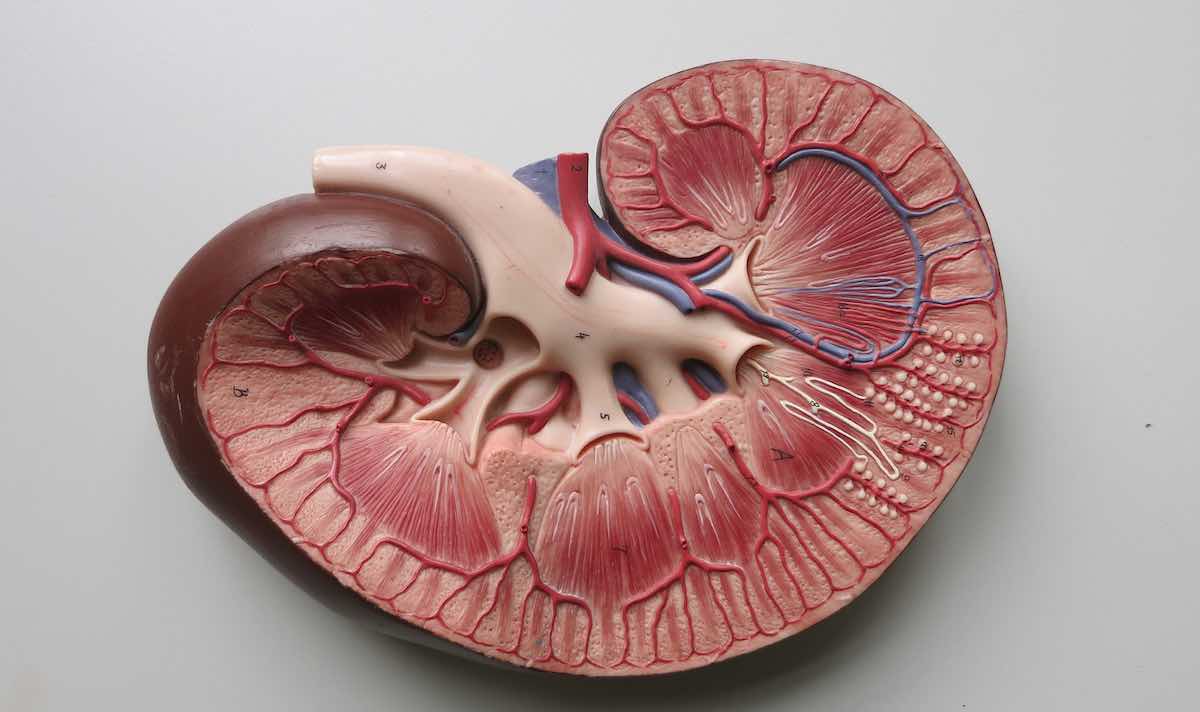For the first time ever, scientists have identified a way to halt kidney disease brought on by a life-limiting genetic condition—and it is expected to be available within the next three years.
Experts at Newcastle University have shown in a cell model and in a mouse model that gene editing could be used to stop kidney damage that is inflicted in patients with the CEP290 faulty gene related to Joubert syndrome.
Joubert syndrome is a brain disorder that causes varying degrees of physical, mental and sometimes visual impairments. The condition affects approximately one in 80,000 newborns, and one third also get kidney failure.
Not all patients with Joubert syndrome carry the CEP290 gene, but those who do will develop kidney disease during their lifetime and may require a transplant or dialysis.
RELATED: First Parkinson’s Patient to Get Unique Stem Cell Treatment Could Pave the Way for Many More by 2023
The study, which was funded by Kidney Research UK, has found it is possible to use a strand of engineered DNA to trick the cells’ own editing machinery to bypass the CEP290 mutation that causes kidney damage—a technique known as ‘exon-skipping’.
Professor John Sayer, from the Institute of Genetic Medicine, Newcastle University, led the research that was published in the Proceedings of the National Academy of Sciences.
“This is the first time that gene editing within the kidney has been performed, even in a mouse model, as the design and delivery of the gene editing to the kidney has previously been thought to be too difficult,” said Sayer. “Our research is a major step forwards as we now know how we may be able to offer a therapy that corrects the gene mistake within kidney cells and prevent the development of genetic kidney disease.
“This work paves the way towards personalized genetic therapies in patients with the inherited kidney disease.”
The European study used kidney cells from patients with Joubert syndrome and a mouse model to progress the research.
Experts used urine samples to grow kidney cells in the laboratory to see how the cells responded to gene editing. They also performed gene editing to halt kidney disease in a mouse that had Joubert syndrome and rodents suffering from kidney cysts and kidney failure.
Professor Sayer, a consulting nephrologist from Newcastle Hospitals, said: “The treatment of genetic kidney disease is challenging, as this requires both the correction of the underlying gene defect and the delivery of the treatment.
CHECK OUT: Veterans Are Finding Peace From PTSD Through ‘Float Therapy’
“We have shown that the kidney disease in a mouse can be dramatically improved using this exon-skipping gene editing technology.
“This will mean that we can edit out genetic mistakes that are leading to inherited kidney diseases such as Joubert syndrome and we are testing this technology in other mouse models before we move into patient studies.
“We expect that we will start to test treatment of patients with exon-skipping within the next three years.”
Scientists are now looking to work with a drug manufacturing company to bring the exon-skipping technology into patients’ clinics.
RELATED: FDA Grants ‘Breakthrough’ Status to Psilocybin Mushroom Therapy for Untreatable Depression
The medical breakthrough is in no small thanks to Asher Ahmed, a 19-year-old from Fenham, Newcastle who has Joubert syndrome and will likely need a kidney transplant in the future.
Asher was diagnosed with kidney damage five years ago and is on a number of drugs to keep him well. He has a range of medical issues due to his Joubert syndrome, including visual impairment, communication problems and difficulties with balance and coordination.
The teenager has been instrumental in helping further the research as he has provided many samples over the years, allowing the Newcastle scientists to grow kidney cells, without which the research would not have been possible.
“All throughout Asher’s life, he has lived with the effects of Joubert syndrome,” says Asher’s mother, Nabila. “Anything that helps further understanding into the condition is well worth doing, so it’s great to see the study’s positive results.”
(Source: Newcastle University)
Cure Your Friends Of Negativity By Sharing The Exciting News To Social Media – File photo by John Campbell, CC




















